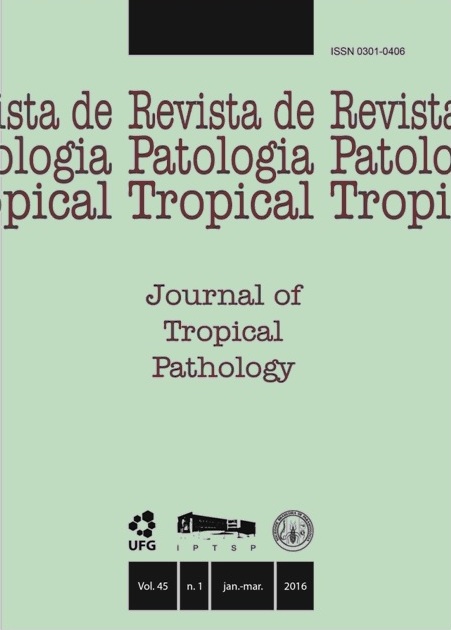Trypanosoma cruzi VECTOR INFECTION RATE IS UNDERESTIMATED IN SOME LOCALITIES IN THE STATE OF BAHIA
DOI:
https://doi.org/10.5216/rpt.v45i1.39979Keywords:
Chagas’ disease, kDNA-PCR, Trypanosoma cruzi, triatomines, Brazil.Abstract
Bahiawas the last Brazilian state declared free of Chagas disease transmission by Triatoma infestans in 2006. The program designed to control vector transmission of Chagas is currently active, and all potential triatomines collected by the Bahia State Department of Health officials are most frequently diagnosed as negative for Trypanosoma cruzi when analyzed by the conventional parasitological direct method. The aim of the current study was to investigate whether triatomines from Bahia are free of T. cruzi infection using a more sensitive diagnostic methodology, namely the kinetoplastid-DNA polymerase chain reaction (kDNA-PCR). With the help of health officials, 51 triatomines were analyzed from peridomicile areas within the central north region of the state of Bahia. The majority (60.8%) were Triatoma brasiliensis, 29.4% were Triatoma pseudomaculata, and 9.8% were unidentified nymphs. Only one insect tested potentially positive for T. cruzi by the conventional parasitological direct method, and 31.4% were positive for T. cruzi DNA by kDNA-PCR. Almost half the infected insects (41.9%) were T. brasiliensis, a species with high potential for T. cruzi transmission. These results demonstrate that the number of infected triatomines with high transmission potential of T. cruzi may be greater than expected in four localities in the state ofBahia.
Downloads
Downloads
Published
How to Cite
Issue
Section
License
The manuscript submission must be accompanied by a letter signed by all authors stating the full name and email address, confirming that the material has not been published or is under consideration for publication elsewhere, and agreeing to transfer copyright in all media and formats for Journal of Tropical Pathology. The authors will not be paid for published articles. They are solely responsible for the content of those articles, even if the Editor holds the right to adjust them to the norms of the journal.
The reviewers will not be paid for the peer review process.

